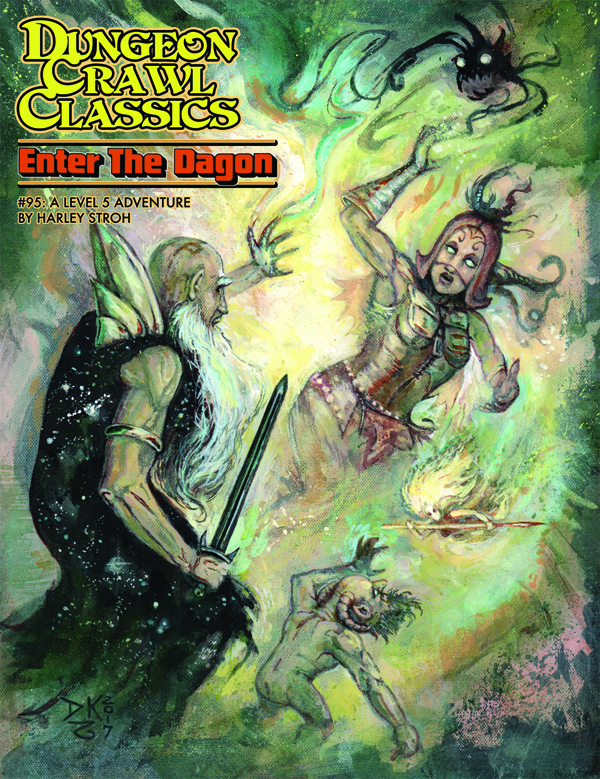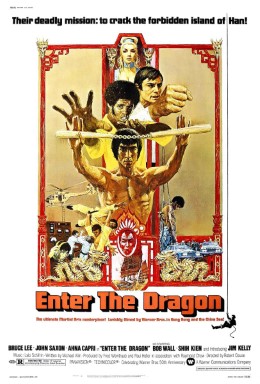Well, is definitely arguable whether or not Traveller is considered proper OSR, and some people even argue against DCC's inclusion. Oh well! Who fucking cares?
OSR puts some lovely ideas out there, but I get the feeling that the movement is slowly losing steam. I see fewer new adventures and blog posts as time goes by. If I use forums as a guide, I'd say the peak of OSR interest was probably around 2012-2013, and I got on this train a little late. Not that I'm particularly dissuaded, but it's sort of disappointing to hear the air hissing out of the tire.
Maybe it doesn't really matter. OSR has contributed something extremely valuable to tabletop role-playing, and even if the "true" OSR community is waning, you can see its influence ripple outwards. The reprint of so many old titles and properties, as well as games like DCC that take a step forwards while being mindful of their roots...and the elephant in the room, 5e itself. Anyone who bothers to look can see OSR fully embedded in D&D 5e's DNA.
 |
| OSR is all about pillaging lost treasures of the past |
I got off-topic! Let's talk about cool games!
First up: The Pirates of Drinax. Sort of ironic that I'd be writing a mini-review for a nearly 600-page product, written by Gareth Hanrahan for Mongoose Publishing. Apparently it was initially published as a ten-part set of adventures that were freely available. Now we have it all compiled in one place, presumably with a bunch of supplementary material that wasn't in the free releases. I'm just going to assume instead of check, since this is a mini-review after all.
It's another one of those adventure settings, written with a heavy bias towards sandbox adventuring. And it's Traveller, which is its own kind of awesome. Oh, almost forgot...the PCs are pirates.
 |
| See! Traveller is now Appendix N! |
Does that get your attention? It really should. The premise is that a petty despot is looking to regain the past glories of his ancestors' kingdom. His plan is to outfit the party with an ancient high-tech pirate ship and a letter of marque that gives them a charter to attack both of the nearby Great Powers: the human Imperium (the usual setting of Traveller) and the Aslan Hierate (a space lion-man society, naturally). The intent of the despot is to play these vast empires off each other and weaken both their holds on his territory.
That's a great premise, and this product gives you what you need to follow through. There are descriptions of the systems in the sector, profiles of the types of ships that the party will run into, and simple guidelines, rules and tables for handling the whole piracy thing. The last part could have been easily overkilled, but Drinax strikes an excellent balance. The rules cover most cases, can be adapted to most of those it doesn't, and easily houseruled to handle the rest.
There's also ten adventures that are provided to be run in almost any order that suits the GM - the only constraint is that the last adventure needs to be run last. The players options are almost unconstrained; they can form whatever alliances and enmities they want. A lot of adventures will try to railroad this for the sake of narrative simplicity, but not Drinax.
 |
| Pirates and railroads clearly don't mix well |
This is the point I need to say that I've barely scratched the surface of this one. I've probably read about 75 pages of the 592 that they cram in your face. Don't get me wrong! So far, the text doesn't seem flabby. A lot of descriptions pop with a few memorable details and then it gets out of your face. This takes discipline on the part of the writer, and an understanding that the adventure author isn't going to blow the GM's mind with his new system of heraldry.
It's expensive at $30 on DriveThruRPG. Well, you are getting a lot of content, and (so far) it looks to be pretty high quality, so I'd call it a great value if quality is maintained throughout. I'd love to find a way to make this stuff run with Stars Without Number. I wonder if Kevin will see it and add piracy to a stretch goal for the Kickstarter of the new edition. After all, SWN is "just" a modern OSR take on Traveller. Nah, he would probably just make it a separate sourcebook like he did for espionage, trade, and military campaigns.
Moving right along...next up is A Field Guide to Hot Springs Island.
 |
| That binding looks sweet |
I already sort-of reviewed Jacob Hurst's The Dark of Hot Springs Island, and I was very pleased. Here was a table-ready sandbox hexcrawl with a very modern OSR sensibility. There was a lot of fun gonzo content, plenty of intertwined plot hooks and a ton of adventure to be had. Hot Springs has me looking for ways to introduce it to my existing campaigns.
If you read that review in detail, you may pick up two small misgivings: that it includes The Lapis Observatory in its entirety (which made my purchase of both somewhat unnecessary), and that the companion volume, A Field Guide To The Hot Springs Island, a travelogue for players, looked a little gratuitous.
Well, Jacob Hurst got in touch with me, and in the process he tried to address both of those very minor complaints. You see, I had seen that Dark included a chapter called "The Lapis Observatory," and before I read it, I assumed I would need to get that separately for Dark to be complete. Upon doing so, I quickly realized my error.
 |
| Lesson learned |
This was not really Jacob's fault at all; I had been impetuous. I mentioned that he might add a note to one or both products to make this fact clear, for the sake of people like me who jump to conclusions. But not his fault. But still, he decided to hook me up with credit for A Field Guide To Hot Springs Island as compensation (since he couldn't take a return on The Lapis Observatory). This could potentially address both of my misgivings. I thanked him, and agreed to write something about what I found (this). So, full disclosure.
In addition, Jacob explained his intent with Field Guide: most of the burden of engagement and expense for role-playing materials falls on the GM, but the Field Guide represents a way that players could take part in the purchase and perusal. Of course, there's a profit motive at work here, but I am not one to disparage the making of an honest buck.
But I do have problems with Field Guide that have nothing to do with the commerce angle. It's well-written for what it is, including a pair of engaging stories about an expedition to the island. My problem with this work is that its spirit runs entirely counter to that of Dark. Whereas the GM content is written for a very open-ended sandbox that can be adapted to your campaign, Field Guide nails everything to the floor and takes control out of the GM's hands.
Concretely, a big issue I have is that Field Guide reveals far too many of the secrets of Hot Springs Island. It details everything from the medicinal value of the island's unique herbs to
 |
| Spoiler alert? |
In other words, the very concept doesn't work for me and how I would want to use Hot Springs Island at my table. Not only do I want control over what players know about the adventure and the location, but I want control to add or remove whatever I want. Field Guide takes this out of my hands.
I'm trying to think of an alternative product that would accomplish some of the same goals more effectively. First of all, although this ruins the whole business strategy of the supplement, I don't think you can take the GM out of the loop. This has to be a product for GMs, not players. And it needs to be more modular, so the GM can decide which sections to include or exclude. This implies the use of digital documents that can be assembled however the GM wants, perhaps with interstitial text.
It would also help if not all the information was so accurate. Maybe a few more misunderstandings and bullshit folk tales, so the PCs wouldn't rapidly conclude that they could act on everything that they read. Some of the sections, like the one of the medicinal properties of herbs, look to have been copy-pasted from Dark. At the very least, I think material like this could be rewritten to have an in-game voice (like the diary of a druid or something like that).
I wish I could like this more. It was very considerate of Mr. Hurst to hook me up with Field Guide, so he did address one of my issues (i.e. the wasted money on Lapis), but the content was unable to address the other. While I'm clamoring to use The Dark of Hot Springs Island at my gaming table, I don't see a place for A Field Guide To Hot Springs Island at all.
Finally, I want to talk about Enter The Dagon...
 |
| Fuck yeah, Harley (and Doug, for the cover) |
As I mentioned in my post about Gen Con 2017, I had a blast with Goodman Games, and had a chance to pick up this gem before it hits the Goodman or DriveThru websites. I even got Harley Stroh (i.e. the author, one of my personal Heroes of Role-playing) to sign it! And now, I'm going to give you peek at what to expect from this beauty.
But before that, I want to tell you about meeting Harley. It was brief, and I had just picked Dagon up from the dealer floor the day before. I hadn't even read half of it by then, but I knew that I really liked what I was reading. So when I was looking for a place to setup for my session, I asked Harley a couple questions about the table and room logistics, and offhandedly mentioned that I had picked up Enter The Dagon.
"How do you like it?," he asked with keen interest.
I said, "It's...great. It's really great stuff, one of your best. Seriously, dude."
"I KNOW, MAN! ISN'T IT AWESOME!"
 |
| Most photos of Harley are blurry because he's awake...this is his resting face |
Harley is clearly one of those folks who was born with the dial stuck on "wildly enthusiastic." His arm was in a cast from a skating accident, and according to my roommate Rick, he's always sporting an injury from skating accidents. I believe this. I didn't even get the slightest cockiness from his reply; it was just the sort of thing you say when you love what you created and you're so glad that other people are enjoying it, too.
Anyone who plays DCC knows that Harley writes some of the best adventures in the business. Well, this is one of his best, so that puts it in the upper echelons. The ideas just pop off of the page, and it's so easy to imagine players going nuts with a setup like the one in these pages.
Enter The Dagon began life as a tournament adventure, and while it's easy to imagine why, it's also apparent that a lot had to change to translate this to non-tournament play. The title is an obvious and cute play on words; it references both Enter The Dragon and H.P. Lovecraft (via the god Dagon, who has nothing to do with this adventure - the joke only goes so deep). Like the famous Bruce Lee film, the framing plot of this adventure is a deadly tournament on a mysterious island. This being DCC, however, the combatants are dueling wizards instead of martial artists.
 |
| Long had the battle raged... |
 |
| ...and now a new warrior joins the fray! |
Like the DCC adventure The 998th Conclave of Wizards, Enter The Dagon puts the party's wizard front-and-center. He or she has received an invitation to compete in magical duels against other wizards on the Isle of Dagon (no relation). This is held by the Order of Dagon (naturally), a group of powerful and mysterious wizards themselves.
 |
| I have nothing to do with this |
The adventure is for fifth-level characters, so you can expect plenty of gonzo mayhem. The text describes all of the competitors and their retinues, the rules and locations of the island, and a timeline of events. There's a lot of room for dirty tricks, so each competitor's towers and its defenses are described in detail, because we know what's going to happen.
The island, the Order and the insectoid servitors of the Order are all mysterious and a little bit sinister, and the reasons for this only become apparent at the end of the adventure. Suffice to say, the Secret Masters aren't doing this just for the sake of watching some cool wizard battles. Even if the party's wizard prevails in the competition, the Order of Dagon isn't done with them, and they'll be lucky to survive the entire ordeal.
Spoiler (select to view): The goal of the Order is to harvest the magical organs of winners, rich with concentrated arcane energies, for consumption. There are hints of this all along; as the party's wizard is constantly fed power-enhancing snacks and treats by his hosts, and a close inspection of these will eventually reveal that they are made from prior competitors.
I love this - it's so dark without being grim or overly serious. There's so much going on here, and a structure that supports a wide variety of outcomes. The party may meet its end on the Isle of Dagon, the PCs may barely escape its shores with their lives, or they could even end up as its new rulers. The other competitors are highly varied, colorful and very gameable. Some of them are very much not what they seem. Interactions could go in so many directions; competitors may spend the run-up to each match engaged in a campaign of skulduggery, or they could even band together against their hosts.
 |
| Some of that black metal magic vibe |
And the whole idea of a wizard's duel as the framework for an adventure - it seems so obvious, but I'm not sure if I've seen it before. I mean, I'm sure someone out there has already done it, but I haven't run across it. There's probably something for Ars Magica. There were no seminal wizard-duel adventures for FRPGs...until now.
One reason for this scarcity could be that few FRPGs have interesting rules for duels between wizards. DCC has some intricate rules for magic duels, but these mechanics are easily some of the clunkiest in the game. I shudder at the thought that my players will figure out that they can counter incoming spells.
Fortunately, Enter The Dagon has new and simplified rules for magical duels. These have been run in a convention setting and they were well-received. They dispense with the momentum die, expand the list of viable counterspells by grouping spells into counterability classes, and they make the counterspell result tables symmetrical with respect to both participants.
If I want to run this adventure in a DCC campaign, I better get cracking, because it's going to take a while to get a fifth-level wizard in the party. I suppose that makes Enter The Dagon a good candidate for a one-off.
Anyway, that's all for mini-reviews...for now. Tell your family and friends!
Footnote:
1 Jacob Hurst responded to my comments on A Field Guide to Hot Springs Island in this post. I think he was very even-handed about it, and I take his point that it was an overstatement to say Field Guide revealed the big secret of the Big Bad. So let me correct the record: it is not the singular biggest secret of the Big Bad.
I stand by the fact that this book reveals more than I'd like players to learn from it. In particular, it reveals something very important about the Big Bad that I would definitely not have wanted them to learn so easily. It is very related to the biggest secret, but I won't say more than that since this is a product intended for players.

No comments:
Post a Comment